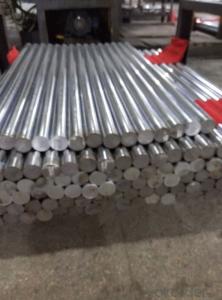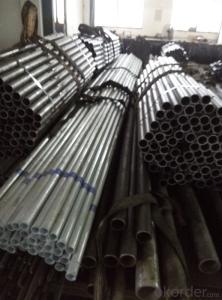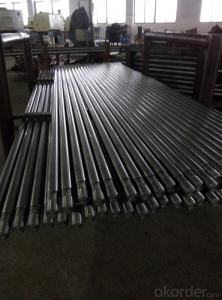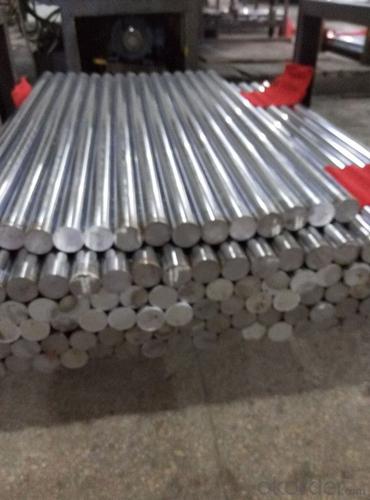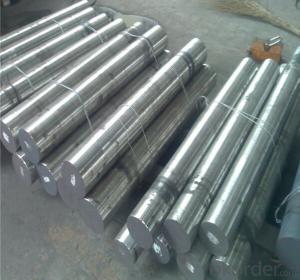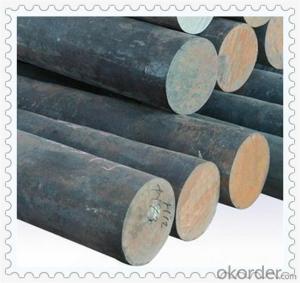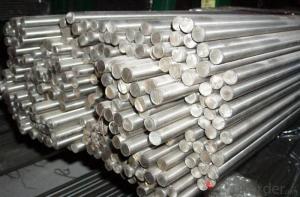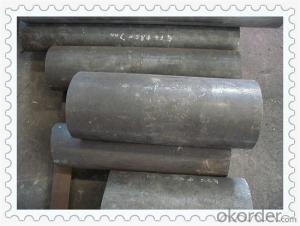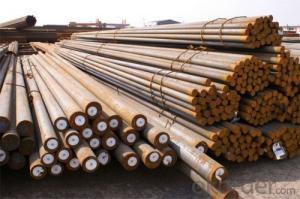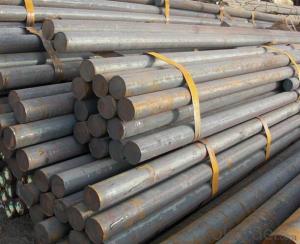Forged Steel AISI 4140 Alloy Steel Bars
- Loading Port:
- Tianjin
- Payment Terms:
- TT OR LC
- Min Order Qty:
- 25 m.t.
- Supply Capability:
- 500000 m.t./month
OKorder Service Pledge
OKorder Financial Service
You Might Also Like
Specification
Forged Steel AISI 4140 Alloy Steel Bars
Product Details:
1.Materail:Alloy Steel, Carbon Steel, Stainless Steel,etc
2.Length≤12m
3.OD≤Φ100~Φ1200
4.Ground and chrome plated
5.ISO9001:2008
6.competitive price
7.excellent service.
8.Strict quality control
9.Prompt delivery
Chemical Composition:
C | Si | Mn | Cr | Ni | Mo |
Equal or less than | |||||
0.37-0.45 | 0.17~0.37 | 0.90-1.20 | 0.90-1.20 | 0.20-0.30 | 0.20-0.30 |
Features:
1) Outer diameter: 15 - 80mm
2) Tube wall thickness: 1 - 8mm
3) Outer diameter: ± 0.01 mm
4) Inside diameter: ± 0.01mm
Delivery status: NBK(+N) BK(+C) BKW+(LC) BKS(SR)
Application:
AISI 4140 is a grade of steel an excellent material for such uses as gears, piston pins, crankshafts,and shafts.It is commonly used for a variety of applications in the oil and gas industry. Examples of applications for 4140 steel also include structural tubing,connection rods, stem assemblies, tool holders,tubes for transportation of pressurized gases.4140 Alloy Steel/SAE 4140 Steel Price is engineering steel supplied in quenched and tempered conditions. Very good machinability. High toughness. High creep strength. Repeated impact resistant capability.
Product Show:
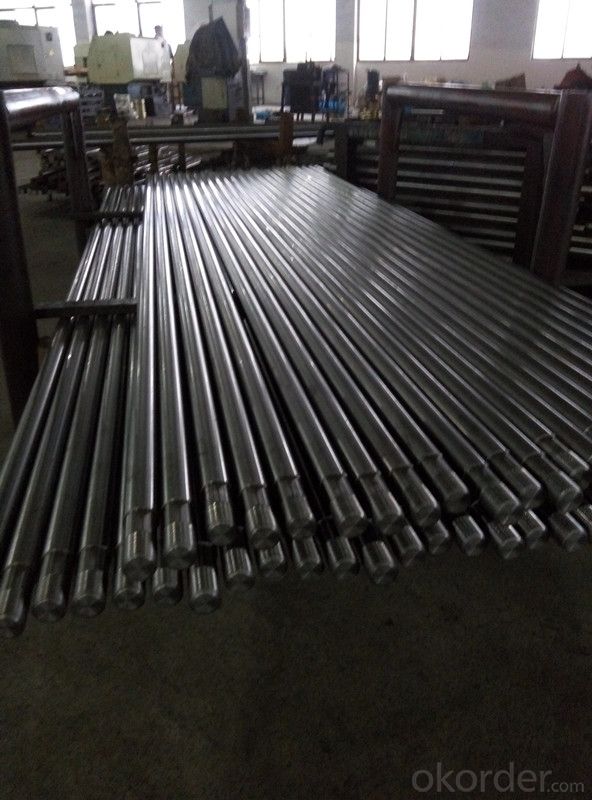
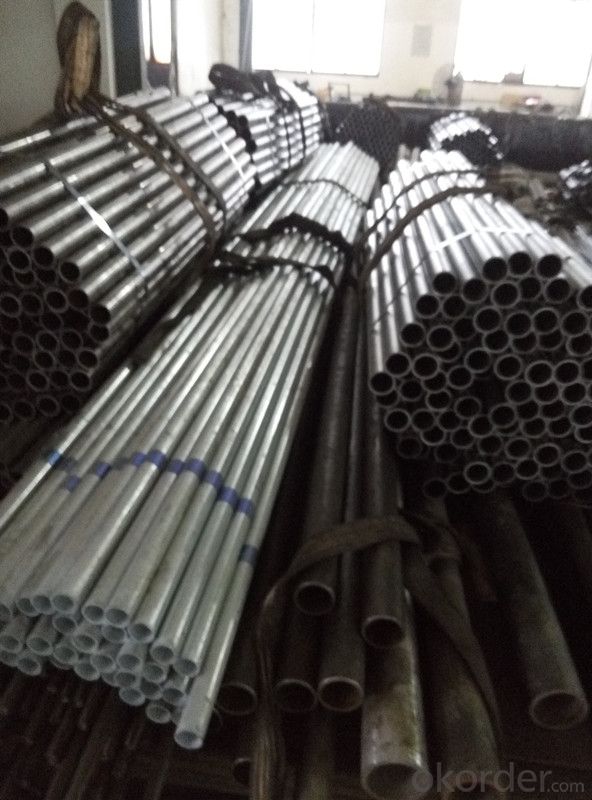
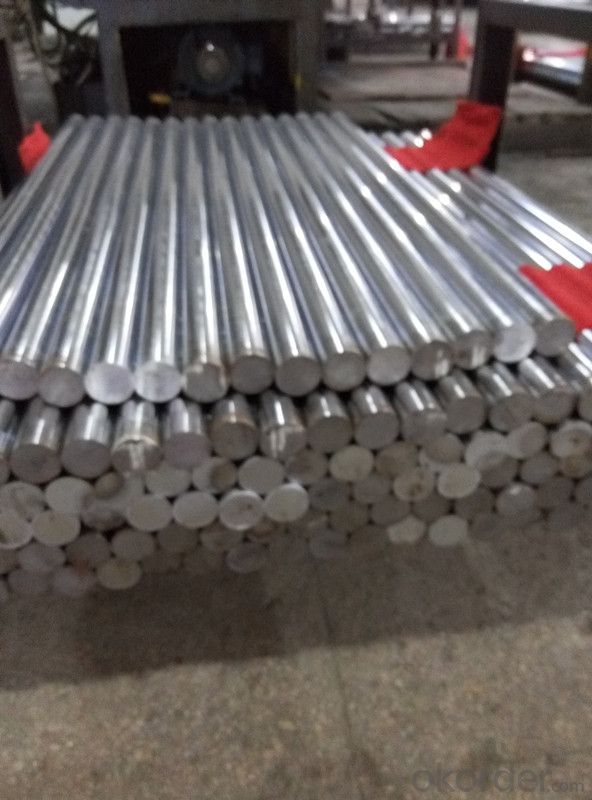
- Q: What are the different cutting techniques used for special steel?
- There are several cutting techniques used for special steel, including but not limited to laser cutting, plasma cutting, waterjet cutting, and abrasive cutting. These techniques are chosen based on factors such as the thickness and hardness of the steel, the desired precision, and the specific requirements of the project.
- Q: What are the applications of special steel in the manufacturing sector?
- Special steel has various applications in the manufacturing sector due to its unique properties. It is commonly used in industries such as automotive, aerospace, construction, and machinery. Special steel's high strength, corrosion resistance, and heat resistance make it ideal for manufacturing components like gears, shafts, bearings, and tools. Additionally, its ability to withstand extreme temperatures and pressures makes it suitable for applications in boilers, turbines, and pressure vessels. Overall, special steel plays a crucial role in enhancing the performance and durability of products in the manufacturing sector.
- Q: What are the different surface treatments available for special steel?
- There are several different surface treatments available for special steel, including galvanizing, electroplating, powder coating, painting, and heat treatment. These treatments are used to enhance the appearance, corrosion resistance, hardness, and overall performance of the steel, depending on the specific requirements of the application.
- Q: How does special steel enhance the durability of products?
- Special steel enhances the durability of products by providing superior strength, hardness, and resistance to wear, corrosion, and extreme temperatures. Its unique composition and manufacturing techniques make it highly efficient in withstanding heavy loads and external factors, thereby ensuring longevity and reliability of the products it is used in.
- Q: How does special steel perform in impact loading conditions?
- Special steel is known for its exceptional toughness and strength, making it highly effective in impact loading conditions. It can withstand high levels of force and absorb energy, resulting in minimal deformation or damage. This makes special steel a reliable choice for applications where impact resistance is crucial, such as in construction, automotive, and aerospace industries.
- Q: How does special steel perform in dynamic loading conditions?
- Thanks to its high strength, toughness, and fatigue resistance, special steel excels in dynamic loading scenarios. When exposed to repeated and fluctuating stresses, special steel can endure the impact and maintain its mechanical properties without any setbacks or distortions. The distinct composition and processing techniques employed in the production of special steel, including the addition of alloying elements and heat treatment, significantly bolster its ability to withstand dynamic loading. Consequently, special steel proves to be an optimal material for applications that involve dynamic forces, such as automotive components, machinery parts, and structural elements utilized in construction. The exceptional performance of special steel under dynamic loading conditions guarantees durability, reliability, and safety across various industries.
- Q: What are the factors that affect the mechanical properties of special steel?
- The mechanical properties of special steel are influenced by several factors, including the chemical composition of the steel, the heat treatment process, the presence of impurities or alloying elements, the microstructure of the steel, and the manufacturing process used. Additionally, factors such as grain size, hardness, tensile strength, ductility, and toughness also play a significant role in determining the overall mechanical properties of special steel.
- Q: How is the quality of special steel ensured?
- The quality of special steel is ensured through a combination of rigorous testing, strict quality control measures, and adherence to international standards and specifications. Special steel producers employ various methods such as chemical analysis, mechanical testing, and non-destructive testing to verify the composition, strength, and integrity of the steel. Additionally, special steel manufacturers often have dedicated quality assurance teams that closely monitor the production process to identify any potential issues and ensure the final product meets the required specifications.
- Q: Can special steel be used in the production of consumer goods?
- Consumer goods can make use of special steel in their production. This type of steel is made up of alloys that have been specifically designed to possess distinct characteristics, such as exceptional strength, resistance to corrosion, or heat endurance. These traits enable special steel to be well-suited for a wide array of consumer goods that require longevity, robustness, or protection against wear and tear. One example of the utilization of special steel is in the manufacturing of kitchen appliances, like knives and cookware, where durability and resistance to corrosion are crucial. Additionally, consumer electronics, such as smartphones and laptops, can incorporate this steel in their casing or internal components to ensure structural integrity and safeguarding. Moreover, the automotive industry frequently relies on special steel for the creation of various consumer goods, including bicycles, motorcycles, and cars. The steel's combination of high strength and lightness makes it an ideal choice for constructing sturdy and enduring vehicle frames, engine parts, and other components. To summarize, the application of special steel in the production of consumer goods is indeed feasible due to its unique properties, which make it suitable for situations necessitating strength, durability, and protection against corrosion or wear.
- Q: How does special steel contribute to the manufacturing of cutting blades?
- Special steel plays a crucial role in the manufacturing of cutting blades. Cutting blades are required to have exceptional strength, durability, and sharpness to efficiently perform their function. Special steel, also known as tool steel, possesses unique properties that make it an ideal material for manufacturing cutting blades. Firstly, special steel has excellent hardness, which enables cutting blades to maintain their sharpness for an extended period. Cutting blades made from special steel can withstand the wear and tear that occurs during cutting operations. This hardness allows the blades to retain their cutting edge, resulting in a longer lifespan and improved cutting performance. Moreover, special steel offers exceptional toughness, which is crucial for cutting blades. During cutting operations, blades are subjected to high impact and stress. Special steel's toughness helps absorb these forces and prevents the blades from breaking or chipping. This ensures that the cutting blades can withstand demanding cutting tasks without compromising their performance. Additionally, special steel provides excellent corrosion resistance. Cutting blades often come into contact with various materials, including moisture and chemicals. The corrosion resistance of special steel prevents the blades from rusting or corroding, ensuring their longevity and reducing the need for frequent replacements. Furthermore, special steel offers good machinability, making it easier to shape and form into the desired blade design. This enhances the manufacturing process by enabling the production of cutting blades with complex shapes and intricate features. The machinability of special steel allows manufacturers to create blades with precise cutting edges and optimal geometries, resulting in superior cutting performance. In conclusion, special steel contributes significantly to the manufacturing of cutting blades by providing hardness, toughness, corrosion resistance, and good machinability. These properties ensure that cutting blades made from special steel are long-lasting, durable, and capable of delivering exceptional cutting performance in various applications.
Send your message to us
Forged Steel AISI 4140 Alloy Steel Bars
- Loading Port:
- Tianjin
- Payment Terms:
- TT OR LC
- Min Order Qty:
- 25 m.t.
- Supply Capability:
- 500000 m.t./month
OKorder Service Pledge
OKorder Financial Service
Similar products
Hot products
Hot Searches
Related keywords
